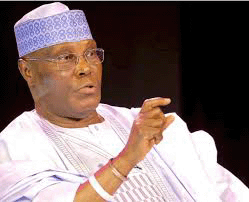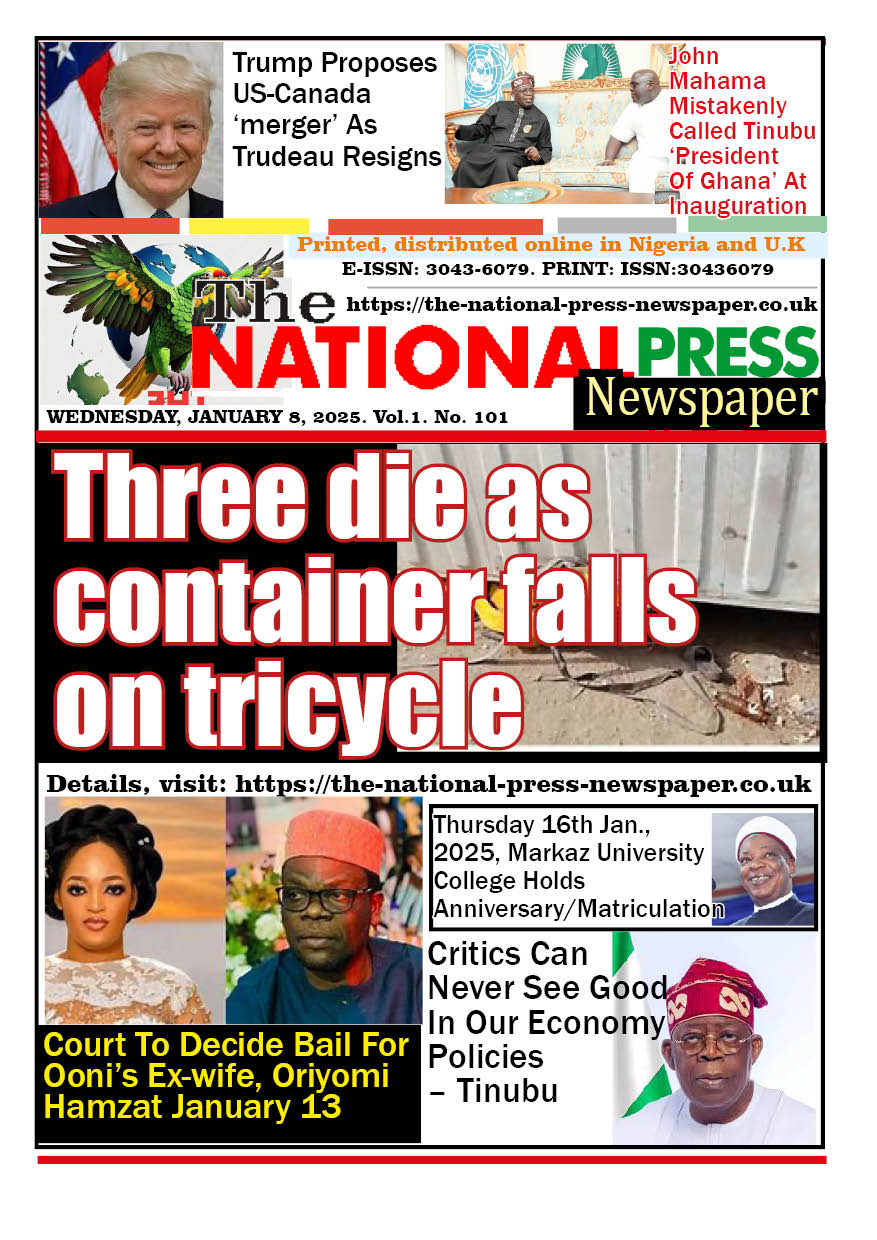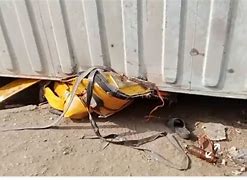•Workers Union Demand Petrol Price Increase Reversal Says Its More Hardship On Nigerians
Former Vice President, Alhaji Atiku Abubakar yesterday tongue-lash President Bola Tinubu and APC led government with their economy policies on Nigerians.
According to Atiku, the presidential candidate of the main opposition party in Nigeria, Peoples Democratic Party, PDP, “economy policies of President Tinubu favoured the ruling class and causing more hardship on Nigerians.”
“Deregulation of the petroleum industry is good, but there must be a plan to ease this policy like creating an alternative to petrol, subsidizing CNG convertion, make CNG convertion available and avoidable to Nigerians,” Atiku said.
“Floating of Naira, subsidized all non avoidable imported goods, creates special window for refineries, imported goods etc.,”
“Food scarcity, create subsidized market places in all local government secretariat in the country. Allow accessiblity for poor masses.”
Petrol Price Increase, More Hardship On Nigerians – Labour, TUC
The Trade Union Congress on Thursday demanded the return of petrol prices to what they were as of June 2023.
The Trade Union Congress on Thursday demanded the return of petrol prices to what they were as of June 2023.
Speaking during a press briefing in Abuja, TUC National President, Festus Osifo, advised the government to provide foreign exchange to the Dangote refinery.
Nigerians woke up on Wednesday to an increment in the pump price of fuel across the country. The Nigeria Labour Congress has since condemned the increase.
“We want the price of the product to go below what it was before; not just reverse to what it was before but to go below.
“The solution we are proposing if implemented will take us to the price we had as of June last year,” Osifo stated, stressing that “there is no government in the world that doesn’t intervene in its critical sector” and that the Federal Government “shouldn’t leave it (the oil sector) to the vagaries and gyration of our naira”.
The TUC leader harped on the availability, affordability, and accessibility of petrol for all Nigerians, saying that the commodity is essential for all Nigerian households, even those without a second-hand value car.
The trade union placed its demands along the lines of affordability, availability, and accessibility, saying, “We want the Federal Government to, through Nigerian Midstream and Downstream Petroleum Regulatory Authority give all marketers licenses to lift petrol from the Dangote Refinery.”
Osifo said the NNPCL should source refined petrol from other places if the Dangote Refinery cannot meet the current daily demands of Nigerians.
“If it is not available, it is a problem. If, for example, the production from Dangote Refinery is less than 15 million litres per day, it is not sufficient.
“So, while efforts are being made to ramp up production from Dangote Refinery, what we are demanding is that we should look for every other means as we are ramping up production, we should source for that difference and bring it in for a while until Dangote can get to that level where the production is sufficient to get to all nooks and crannies of Nigeria. For us, that is key because it will address the issue of availability,” the TUC boss stated.
The Nigerian National Petroleum Company Limited, NNPC Ltd,, has increased the price of Premium Motor Spirit, otherwise known as petrol, from N855 per litre to N998 per litre.
The increase in the price of petrol, which came on Wednesday, was noticed at the pumps at all NNPCL depots in Lagos State.
The new development is a 12.7 percent or N113 increase from the initial price.
The increase in the price of petrol, which came on Wednesday, was noticed at the pumps at all NNPCL depots in Lagos State
Fuel prices shot up at pumps across Nigeria on Wednesday, dealing another blow to Nigerians already suffering the worst economic crisis in a generation.
The NNPCL has not commented on the sudden increase of roughly 15 to 20 percent seen at pumps nationwide.
But it marks the second such hike in just over a month. In early September, the Nigerian National Petroleum Company Limited (NNPCL) acknowledged huge debts to fuel suppliers and announced a roughly 40-percent price increase to help its finances.
Nigerians are already battling soaring inflation and food costs as well as a battered naira currency.
For many, Wednesday’s hike was the latest measure to eat into their budgets as President Bola Ahmed Tinubu’s government pursues reforms billed as a way to revive the economy of Africa’s most populous country.
“It’s biting everybody,” said Ohaka Amaechi, a 56-year-old police driver queueing for fuel at an NNPC pump in the commercial hub Lagos. “The price isn’t good, but we don’t have a choice. People are struggling to survive.”
At that pump, the price had risen from 855 to 998 naira per litre ($0.53 to 0.62), while elsewhere prices topped 1,000 naira, including in the capital Abuja and the northern city Kano.
Private suppliers already sold fuel at higher prices.
After coming to power last year, President Tinubu said his reforms would revive the economy in the long term and attract foreign investment.
But Nigerians have seen inflation hit a three-decade high since Tinubu ended a fuel subsidy and floated the naira currency.
Before the reforms, petrol sold for less than 200 naira per litre.
“I can’t tell if Tinubu is trying to make it better,” said Emem Bob, a 24-year-old sales representative queueing for fuel in Lagos.
“Our bosses aren’t adding to our salaries, and we pay for transport every day. It will increase food prices too,” she said. “It affects everybody.”
One of the country’s main unions, the Nigeria Labour Congress, said it was “dismayed” by the hike and called for its immediate reversal.
But rallies over economic hardship struggled to build momentum earlier this month following a deadly crackdown by the authorities on nationwide demonstrations in August.
On the day of the poorly attended October protests, Tinubu gave a speech once again calling for Nigerians to be patient with his reforms.





